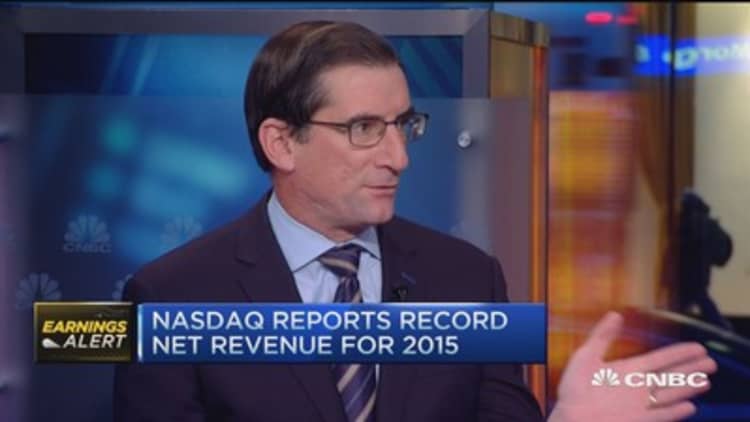
Technology is changing the role of traditional market intermediaries who connected buyers and sellers, and that's a good thing, Nasdaq OMX Group CEO Bob Greifeld said Thursday.
In the capital markets, technology has allowed for more natural buyers and natural sellers to directly interact, he told CNBC's "Squawk Box."
To be sure, there will always be market participants ready to trade a big cap stock like Apple, but Nasdaq concerns itself with lower activity stocks and how they're handled in the marketplace, Greifeld said.
"When you go down the market capitalization curve, and you have stocks that don't trade that often, then the role of the intermediary is fundamentally import," he said.
"That's where you have some disruption. You need somebody there because a willing buyer and a willing seller on a thinly traded stock doesn't happen to show up at the same time."
Greifeld said 90 percent or more of activity coming into the market is driven by computer trading of some kind, but there is still a person behind the machine.
"The computer automates the man's decision. It's not the other way around. Yet," he said.
Nasdaq on Thursday reported a fourth-quarter earnings that beat estimates by a penny per share. Recent market volatility has helped and hurt Nasdaq, Greifeld said.
"We do well because there's more trading when there's higher volatility, and we obviously get paid for trading activity. On the other side of the coin, IPO activity tends to slow down or stop during times of elevated volatility," he said.
In the short term, Nasdaq makes more money from trading activity, but fewer initial public offerings can impact its long-term revenues, he added.
On a per-share basis, Nasdaq said it had profit of 88 cents. Earnings, adjusted for one-time gains and costs, were 89 cents per share.
The exchange operator posted revenue of $536 million in the period, beating Street forecasts. Six analysts surveyed by Zacks expected $530.6 million.
For the year, the company reported profit of $428 million, or $2.50 per share. Revenue was reported as $2.09 billion.
Share prices for companies on the Nasdaq have risen slightly since the beginning of the year, while the S&P 500 index has fallen roughly 8 percent. Shares in Nasdaq's stock has increased 27 percent in the last 12 months as of Wednesday's close.
—AP contributed to this story.



